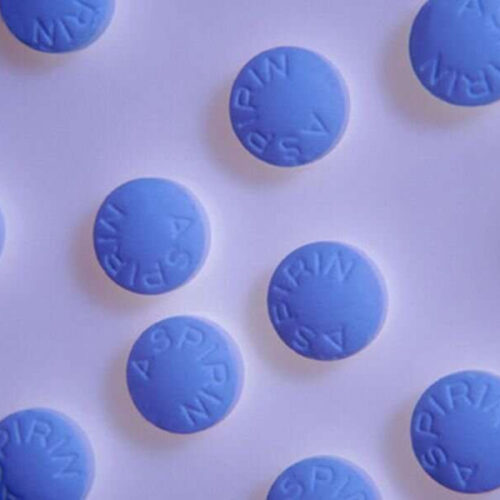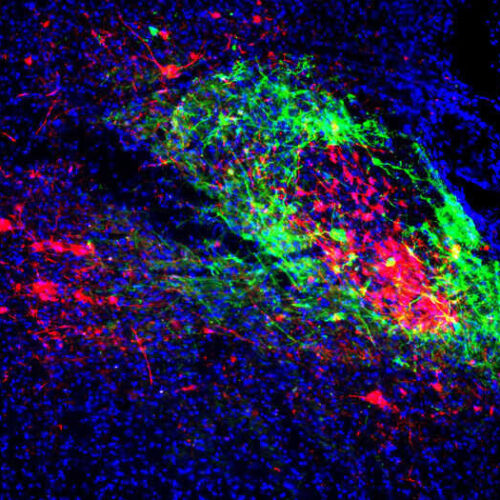Nanomaterials have revolutionized the world of cancer therapy, and plant-derived nanoparticles have the added advantage of being cost-effective and easy to mass produce. Researchers from Tokyo University of Science have recently developed novel corn-derived bionanoparticles for targeting cancer cells directly, via an immune mechanism. The results are encouraging, and the technique has demonstrated efficacy in treating...
P53 protein plays a key role in tissue repair, study finds
New research led by the University of Bristol has found the protein p53 plays a key role in epithelial migration and tissue repair. The findings could improve our understanding of the processes used by cells to repair tissues, and be used to identify interventions that could accelerate and improve wound repair. Epithelial tissues are the...
Study finds daily aspirin does not prevent recurrence of breast cancer
(HealthDay)—Regular aspirin use does not improve invasive disease-free survival (iDFS) among high-risk breast cancer patients with human epidermal growth factor receptor 2 (HER2)-negative disease, according to a study presented Feb. 15 as part of the American Society for Clinical Oncology Plenary Series. Wendy Y. Chen, M.D., M.P.H., from the Dana Farber Cancer Institute in Boston,...
Hepatitis C patients cured with antiviral medicines are less likely to be hospitalized, need ER care for liver
by Henry Ford Health System Electron micrographs of hepatitis C virus purified from cell culture. Scale bar is 50 nanometers. Credit: Center for the Study of Hepatitis C, The Rockefeller University. Researchers at Henry Ford Health System, as part of a national hepatitis C collaborative, report that patients with chronic hepatitis C who are treated...
Steroid treatments for Duchenne muscular dystrophy may depend on the clock
by Cincinnati Children’s Hospital Medical Center In mice, prednisone enhances muscle activities when once-weekly doses are given at the beginning of the day but not at the beginning of the night cycle. Credit: Cincinnati Children’s Each year, about 20,000 children are diagnosed with Duchenne muscular dystrophy, a rare genetic condition that causes progressive muscle weakness...
Scientists map entire human gut at single cell resolution
by University of North Carolina Health Care Protein MUC5b (red) in crypt-resident goblet cells; MUC2 (green) in all goblet cells. Credit: Magness Lab, UNC School of Medicine If you get nervous, you might feel it in your gut. If you eat chili, your gut might revolt, but your friend can eat anything and feel great....
Art and music therapy seem to help with brain disorders. Scientists want to know why
February 19, 2022 6:00 AM ET JON HAMILTON Following a traumatic brain injury, veteran Michael Schneider found that art and music therapy helped him manage his epilepsy and PTSD. Schneider explains that by playing music, he can prevent a seizure. Madeline Gray for NPR When Michael Schneider’s anxiety and PTSD flare up, he reaches for...
A brain circuit linking pain and breathing may offer a path to prevent opioid deaths
December 22, 2021 6:00 AM ET JON HAMILTON Shell neurons (green) project to the breathing center and core neurons (red) project to the pain/emotion center. Brain scientists have found the two are linked, shedding new light on opioid overdoses Salk Institute When people feel pain, they tend to breathe faster. When they take an opioid...
Supplements for menopausal symptoms—solutions or snake oil?
Women struggling with the change of life often head to the supplements section of their pharmacy to deal with menopause symptoms like hot flashes and sleeplessness. But experts say they’d be better off going to their doctor and asking for clinically proven treatments rather than relying on an herbal remedy. There’s scant clinical evidence that supplements...
Is Mild Cognitive Impairment Reversible?
Pauline Anderson February 14, 2022 A high level of education, superior academic performance and excellent written language skills may predict the reversal of mild cognitive impairment (MCI) to normal cognitive function, new research shows. Investigators found individuals with these factors, which are all markers of cognitive reserve, had a significantly greater chance of reversion from MCI to...







